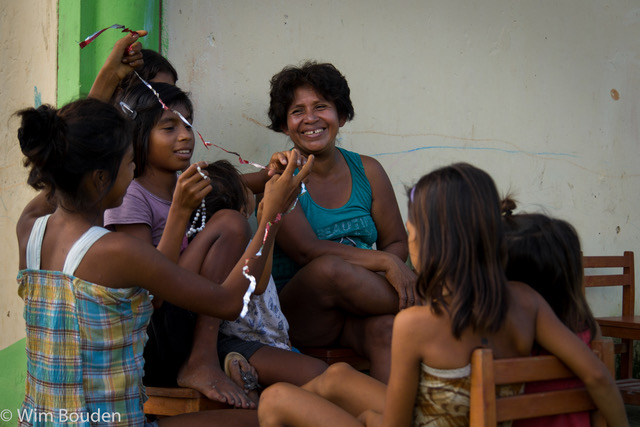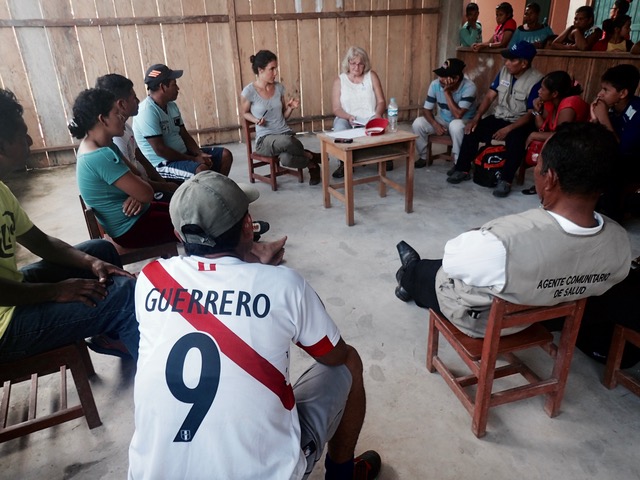Research team and affiliations: Dr Jenevieve Mannell (Principal Investigator), Institute for Global Health, University College London & Dr Geordan Shannon (Co-Investigator), Medical Director DB Peru

In the Amazon basin of Peru, recent figures show that 79% of women between the ages of 18 and 29 report experiencing sexual violence at some point in their life. In 2015, DB Peru - a local non-profit organisation that has worked with communities of the Lower Napo River for over 15 years in health and community development - held an emergency meeting of local leaders and promotors (lay community health workers) to discuss these high rates of violence. It emerged that the communities were concerned about violence and wanted to do something about it, but lacked the resources to properly address GBV. Following a discussion and brainstorming, the 25 communities agreed to develop a Promotor-led community mobilization and education program to target GBV in Lower Napo River communities, facilitated by resources from DB Peru and UCL. This gave birth to the GAP Project. The GAP Project is the first primary preventative strategy for GBV in the region of the Lower Napo River, and the first community mobilization project of its type in Peru. To our knowledge, it is also the first project to foster a participatory action research approach to GBV prevention in a low-resource, isolated rural setting.
The aim of the GAP project is to develop a context-relevant community-based intervention to prevent GBV in the Amazon Basin of Peru through participatory action research, with a particular focus on reducing violence against women and girls.
1. Through a collaborative, participatory action research approach with communities, identify risk factors for GBV and mechanisms for its prevention;
2. Design and implement a pilot GBV prevention intervention in the Lower Napo River of Peru;
3. Collaboratively assess the potential of the intervention, as well as the barriers and enablers to achieving the primary aim of reducing violent behaviours against women and girls.

DB Peru and UCL will assist Promotors to lead 5 selected communities through a series of participatory research activities over a 12 month period, following the five stages of participatory action research: reflecting, engaging, planning, acting, and observing/ evaluating. Through this process, the Promotors will develop a GBV prevention intervention in collaborative with the communities, implement the intervention, and collect extensive case study data for its evaluation.Implications for the field / programming / policyAlthough the GAP project will be situated in a prescribed area of 25 communities in the Amazon basin of Peru, the project has implications for other remote communities both regionally and internationally. The project will help develop new understandings of the process of community participation as a primary prevention strategy for GBV in these settings. The lessons learned can then be used to inform appropriate programming for resource-poor communities, which involve communities directly in the development of primary prevention activities and that rely only minimally on financing, technology and external expertise.
For further information: [email protected] / [email protected]